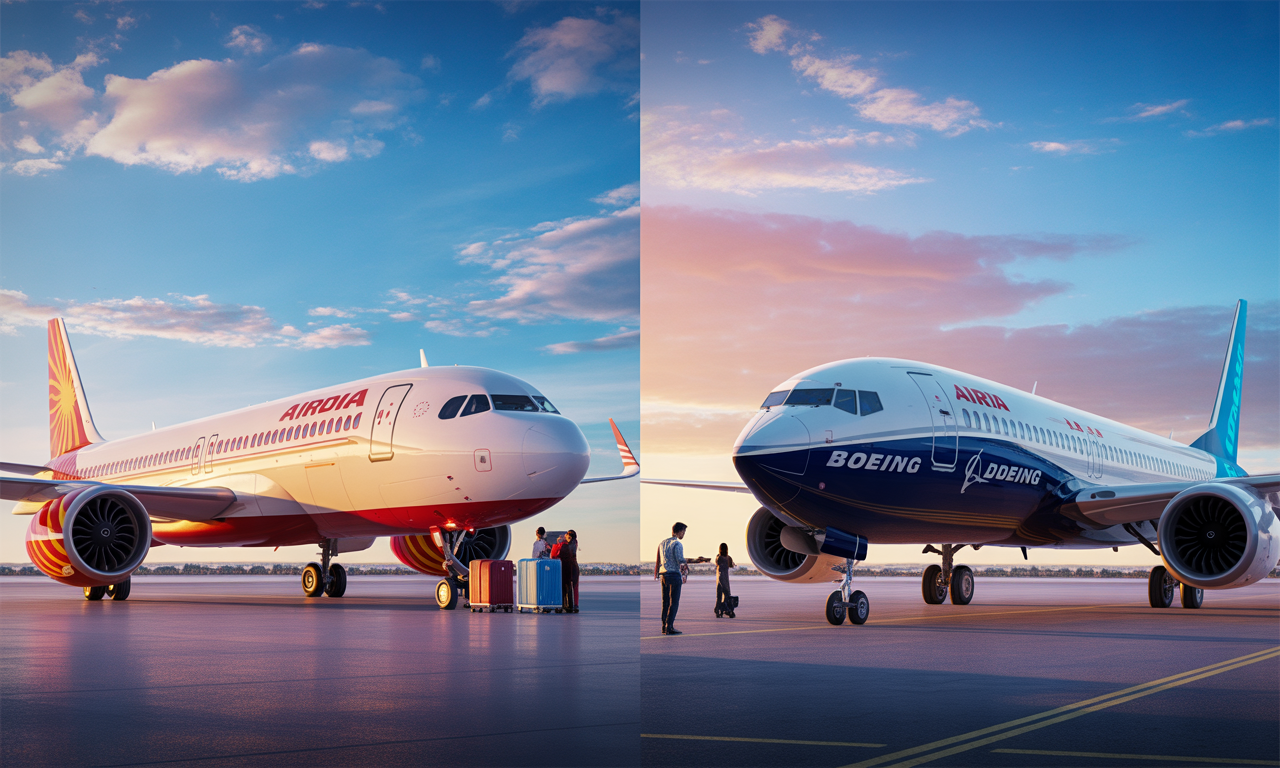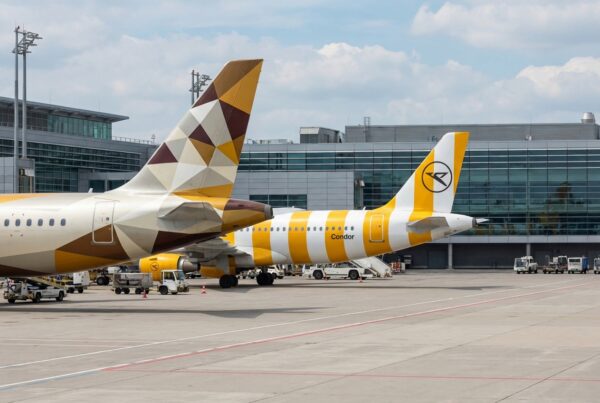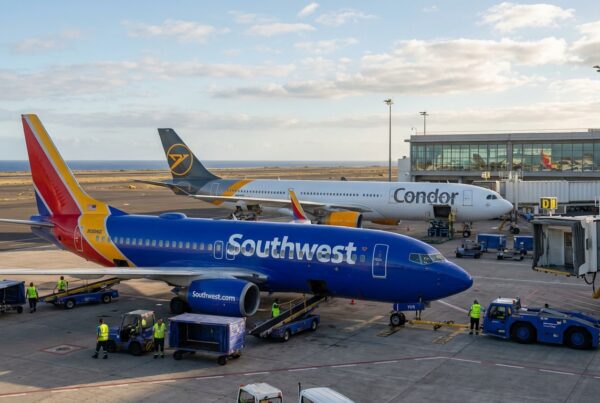Air India plans to acquire two hundred single-aisle aircraft to modernize its fleet and strengthen its domestic network. This strategic order should boost operational efficiency and optimize performance. The competition between Airbus and Boeing offers buyers a qualitative choice, with advanced technologies and safety innovations. This ambitious project testifies to the desire for transformation and modernization in the aeronautical sector, guaranteeing high standards of comfort and reliability for a diverse and international clientele. Air India's commitment is a perfect illustration of the dynamics and evolution of global air transport.
Against a backdrop of fierce competition on the global market, Air India plans to expand its fleet by acquiring 200 single-aisle aircraft. This strategic project is part of a drive to modernize and optimize costs, which should redefine the airline's standards. The decision involves a crucial choice between two industry giants, Airbus and Boeingeach with its own specific offering.
Background and challenges
Faced with growing demand and rapidly evolving aeronautical technologies, fleet renewal has become a necessity if we are to remain competitive. Theacquisition of 200 single-aisle aircraft by Air India represents a major operation that will influence market dynamics. What's more, this initiative could have a knock-on effect on other players in the sector, similar to that seen when Air France-KLM was studying expansion strategies.
Airbus offer analysis
One of the options under consideration is the proposal of aAirbus. The European manufacturer is banking on innovation and fuel efficiency to win over a company eager to modernize its fleet. Recent models, offering superior performance in terms of fuel economy and passenger comfort, could prove an attractive choice for Air India. The company has already strengthened its position in the single-aisle segment, as demonstrated by the expansion of Air Niugini's fleet with the purchase of two new Airbus A220s, available at Air Niugini.
Boeing offer analysis
The other option being considered is an offer from the American giant Boeing. Renowned for the robustness of its aircraft and its capacity for innovation, Boeing continues to score points with strategic acquisitions, such as the $83 billion purchase of Spirit AeroSystems, underlining its determination to dominate the global market. This choice would enable Air India to benefit from a proven fleet, with advanced customization possibilities and optimized maintenance, in line with the initiatives recently taken by Emirates SkyCargo, which expanded its fleet with five new Boeing 777Fs (Emirates SkyCargo).
Impact on the aeronautics market
Air India's final decision on the choice between Airbus and Boeing will have a major impact on the industry. An order of this magnitude could influence the strategies of other airlines and generate synergy effects on a global scale. The market could also see an acceleration in single-aisle deliveries, similar to the expansions achieved by All Nippon Airways with the acquisition of seven Dash 8-Q400 aircraft (All Nippon Airways).
Community dynamics and subscriber engagement
Loyal readers benefit from privileged access to our content, without the interference of advertising banners, thanks to our navigation system. smooth and ad-free. Your experience is further enhanced by features such as the validation of your pseudonym by e-mail address verification, guaranteeing secure and unique interactivity in the comments section. What's more, subscriber comments are published instantlyThis contrasts with those of non-subscribers, who require rigorous moderation.
Convergence of market players
Air India's choice is part of a global trend in which several major players are readjusting their fleet strategies. For example, Boeing recently took a major step forward with the acquisition of Spirit AeroSystems, which is a strong indicator of the effervescence in the sector (Boeing). A similar dynamic can also be seen at other airlines, as in the initiative by Delta and Korean Air, in collaboration with WestJet, whose partnerships are often hailed in the aviation industry (Delta and Korean Air).

Comparison Airbus vs. Boeing
| Technology | Ergonomic innovation and advanced systems |
| Performance | Operational optimization and proven efficiency |
| Security | Certified protocols and high standards |
| Operating costs | Fuel economy and optimized maintenance |
| Comfort | Redesigned cabin and optimized interior space |
| Reputation | Internationally recognized expertise |
| Service | Dedicated technical support and global assistance |
| Adaptability | Flexible configuration options and innovative customization |




